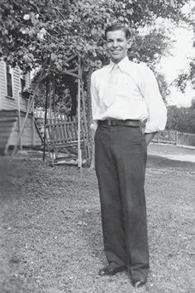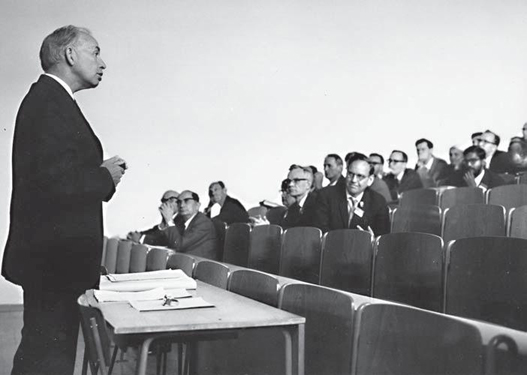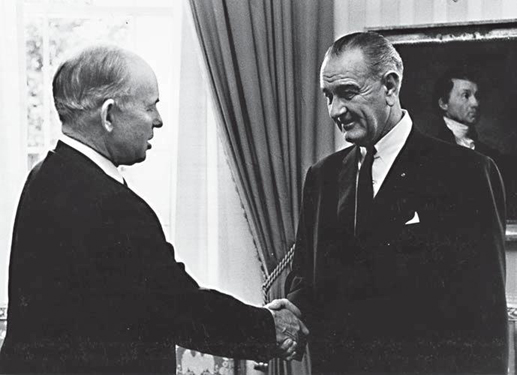- About MAA
- Membership
- MAA Publications
- Periodicals
- Blogs
- MAA Book Series
- MAA Press (an imprint of the AMS)
- MAA Notes
- MAA Reviews
- Mathematical Communication
- Information for Libraries
- Author Resources
- Advertise with MAA
- Meetings
- Competitions
- Programs
- Communities
- MAA Sections
- SIGMAA
- MAA Connect
- Students
- MAA Awards
- Awards Booklets
- Writing Awards
- Teaching Awards
- Service Awards
- Research Awards
- Lecture Awards
- Putnam Competition Individual and Team Winners
- D. E. Shaw Group AMC 8 Awards & Certificates
- Maryam Mirzakhani AMC 10 A Awards & Certificates
- Two Sigma AMC 10 B Awards & Certificates
- Jane Street AMC 12 A Awards & Certificates
- Akamai AMC 12 B Awards & Certificates
- High School Teachers
- News
You are here
Archives Spotlight: The R.H. Bing Papers
The R.H. Bing Papers
By Kristy Sorensen, from material compiled by Frederic F. Burchsted
The following article, featured as part of the Archives of American Mathematics Spotlight, was published in the March 2005 issue of MAA FOCUS. The full issue is available here (pdf).
A highlight of the holdings at the Archives of American Mathematics (AAM) is the collection of papers of former MAA president R.H. Bing.
Bing was born in Oakwood, Texas, on October 20, 1914. He graduated from Southwest Texas State (now Texas State University) Teachers College, San Marcos, in 1935 and, after several years as a high school mathematics teacher, began his graduate study at the University of Texas at Austin under R.L. Moore, receiving his doctorate in 1945.

R.H. Bing as a young man, taken by Brack's Studio, San Marcos, Texas, undated. (Click to enlarge.)
Source: The R.H. Bing Papers at the Archives of American Mathematics.
In 1947, he accepted a position at the University of Wisconsin, Madison, where he became a full professor and, for two years, chaired the Mathematics Department. During this time, he also visited the University of Virginia (1949-50), the Institute for Advanced Study (1957-58, 1962-63, 67), and the University of Texas (1971-72). He returned to the University of Texas in 1973 and stayed there until he retired in 1985.

R.H. Bing lecturing to a group of mathematicians, undated. (Click to enlarge.)
Source: The R.H. Bing Papers at the Archives of American Mathematics.
Bing was elected to the National Academy of Sciences in 1965 (council member, 1970-80) and was a member of the National Science Board (1968-74) and of the National Research Council governing board (1977-80). He was active in several mathematical organizations, including the Mathematical Association of America (president, 1963-64), the American Mathematical Society (president, 1977-78), the Conference Board for the Mathematical Sciences (chairman, 1965-66), the Mathematical Sciences section of the National Academy of Sciences (chairman, 1970-73), and the Division of Mathematical Sciences of the National Research Council (1967-69). In 1974, he received the MAA Award for Distinguished Service to Mathematics.

R.H. Bing with Lyndon B. Johnson, undated. (Click to enlarge.)
Source: The R.H. Bing Papers at the Archives of American Mathematics.
Bing's research concentrated on the geometric topology of 3-manifolds, particularly their pathology. His side approximation theorem for 2-spheres in Euclidean 3-space and his "Bing shrinking" procedure have been generalized to higher-dimensional manifolds. Bing summarized the field in his classic The Geometric Topology of 3-Manifolds (1983).

R.H. Bing and his wife, Mary, at the Southwest Texas State Distinguished Alumni exhibit, 1984. (Click to enlarge.)
Source: The R.H. Bing Papers at the Archives of American Mathematics.
The Bing papers at the AAM primarily consist of material from his years as a professor at the University of Texas at Austin, including Bing's work in preserving the papers of R.L. Moore, records of the formation of the AAM, and the preparation of an unpublished Moore memorial volume. Bing's services to the scientific and mathematical communities are documented by records of his work for the National Academy of Sciences, the National Research Council, and various topology conferences and institutes. Bing's topological work is chiefly reflected in manuscript material and dittoed preprints (with annotations) of The Geometric Topology of 3-Manifolds. In addition to manuscript material, many photographs are included in this collection.
A portion of R.H. Bing's papers are in the Archives of Texas State University. A finding aid for the R.H. Bing Papers at the AAM is available online.
Kristy Sorensen served as the archivist at the Archives of American Mathematics until November 2006.
The Archives of American Mathematics (AAM) is a unit of the Dolph Briscoe Center for American History at the University of Texas at Austin. Individuals interested in conducting research or donating materials or who have general questions about the AAM should contact Carol Mead, Archivist: carolmead@austin.utexas.edu, (512) 495-4539.
Revised on July 12, 2010.




